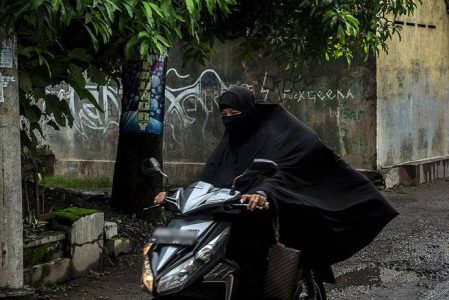
The dangerous Islamic State threat headed to Australia’s doorstep
After the death of Islamic State leader Abu Bakr al-Baghdadi, United States President Donald Trump gloated that ISIS had met its end.
Trump congratulated the U.S. military for bringing “the world’s number one terrorist leader to justice” and said Baghdadi “died like a dog” while “crying, whimpering and screaming”.
Experts quickly pointed out that the Islamic State won’t be stomped out that easily and that it’s extremely difficult to kill an ideology.
“You can’t kill an ideology very easily. If you think about communism or socialism or any of those things, they sort of keep on with a life of their own,” visiting Professor at The Australian National University Centre for Military and Security Law Clive Williams said.
“Particularly if there’s some degree of grievance involved or in some people’s eyes, some degree of legitimacy.”
As expected, it was only a matter of days before the Islamic State announced its new leader Abu Ibrahim al-Hashimi al-Qurashi, who promised to avenge al-Baghdadi’s death.
While the Islamic State has lost almost all of its territory, experts warn that it has gained influence in parts of South East Asia and Africa.
The Islamic State’s first task will be consolidating its control over fighters in Iraq and Syria but long-term it has set its sights on parts of Malaysia, the Philippines and Indonesia.
Experts have warned travellers to steer clear of Mindanao in the Philippines, parts of southern Thailand and to exercise caution in Surabaya and Bali in Indonesia, as well as in parts of Malaysia.
“I think from ISIS’ viewpoint, Southeast Asia is part and parcel of its global strategy, which has been made all the more pertinent with the loss of the caliphate in the Levant region,” Dr Srinjoy Bose, a Lecturer in Politics and International Relations at the University of New South Wales said.
“If local authorities in Indonesia and the Philippines are unable to check the ISIS threat in their own territories then obviously it could threaten Australian assets and citizens and travellers,” Dr Bose said.
Professor Williams said that al-Baghdadi’s death could inspire a catastrophic attack like the Bali bombings, which killed 202 people including 88 Australians in 2002.
“There’s always the potential for small groups to mount attacks and they could be directed against Westerners, including Australians in places like Bali and Surabaya,” Williams said.
“Those cells in Indonesia are more likely to be anti-Western. Recently they’ve been involved in church bombings and Christian activities but since the killing of al-Baghdadi they might go back to targeting Australians,” he said.
The Islamic State’s online campaign to recruit foreign fighters and encourage them to carry out devastating attacks on Western soil has had unprecedented success.
Source: Ten Pty Limited





